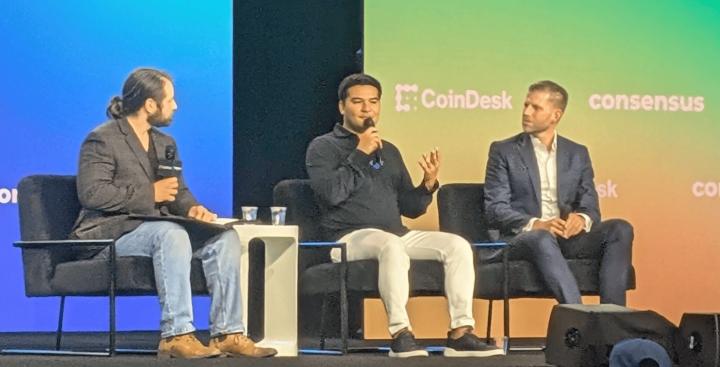The CEO of Tether, Paolo Ardoino, has refuted concerns that quantum computers pose an immediate threat to the security of Bitcoin.
His comments came after reports that Google predicts commercial applications of quantum computers could emerge within the next five years.
Quantum Computers Could Recover Lost BTC
In a post on X on 08/02, Ardoino reassured the community that Bitcoin's cryptographic security remains safe. He said that quantum computers are still far from posing a significant threat, and that Bitcoin will implement quantum-resistant solutions before the technology becomes a serious concern.
However, he pointed out that if quantum technology advances significantly, inactive Bitcoin wallets - particularly those belonging to lost or deceased owners - could be exposed. This includes wallets believed to contain around 1.2 million BTC linked to Bitcoin's anonymous founder, Satoshi Nakamoto.
"Any Bitcoin in lost wallets, including Satoshi's (if he's no longer alive), will be hacked and brought back into circulation,"
the Tether CEO said.
 Total Bitcoin Lost. Source: Chainalysis
Total Bitcoin Lost. Source: ChainalysisNevertheless, Ardoino dismissed concerns that quantum computers could disrupt Bitcoin's fundamental monetary structure. He emphasized that Bitcoin's 21 million supply cap will not change, regardless of technological advancements.
"There are only 21 million Bitcoins. Nothing can change that. Not even quantum computers. That's a really important message,"
Ardoino added.
Ardoino's view aligns with that of Emin Gün Sirer, the co-founder of Ava Labs. Sirer previously pointed out that early Bitcoin transactions used the Pay-to-Public-Key (P2PK) format, which is now outdated. This method exposes the public key, making it vulnerable to quantum attacks.
Sirer suggested that a preventative approach could help mitigate future risks. This includes freezing old P2PK-based holdings or setting expiration dates for their usability.
"Satoshi's early mined coins use the very old Pay-To-Public-Key (P2PK) format, which exposes the public key and allows attackers to have time to exploit, for the largest cryptographic rewards...when quantum computers become a threat, the Bitcoin community may want to consider freezing Satoshi's coins, or more generally, providing an expiration date and freezing all coins at P2PK utxos,"
Sirer noted.
The Quantum Computing Race and Its Implications
Quantum computers leverage the principles of quantum mechanics to process information at speeds far exceeding traditional computers. This breakthrough has raised concerns about their potential to undermine modern cryptography, including the encryption measures protecting blockchain networks.
Google recently announced its latest quantum processor, Willow, reigniting discussions about how quickly these advancements could impact cybersecurity. While many experts have estimated that real quantum threats are at least a decade away, Google's Quantum AI lead, Hartmut Neven, suggested that commercial applications could emerge within five years.
"We are optimistic that within five years, we will see practical applications that can only be performed on a quantum computer,"
Neven was quoted as saying.
An advanced enough quantum computer could theoretically break encryption keys, manipulate blockchain transactions, and control mining operations. This could lead to risks such as unauthorized access, double-spending, and network manipulation. As a result, the cryptocurrency community is closely monitoring these developments to assess the potential impact on digital security.
Notably, the blockchain industry has been and is developing countermeasures. Blockchain networks like Solana are actively working on quantum-resistant encryption, ensuring that the technology evolves in parallel with emerging threats.
Subscribe to the BeInCrypto newsletter to stay updated on the latest analysis and news on the financial markets, including cryptocurrencies.








